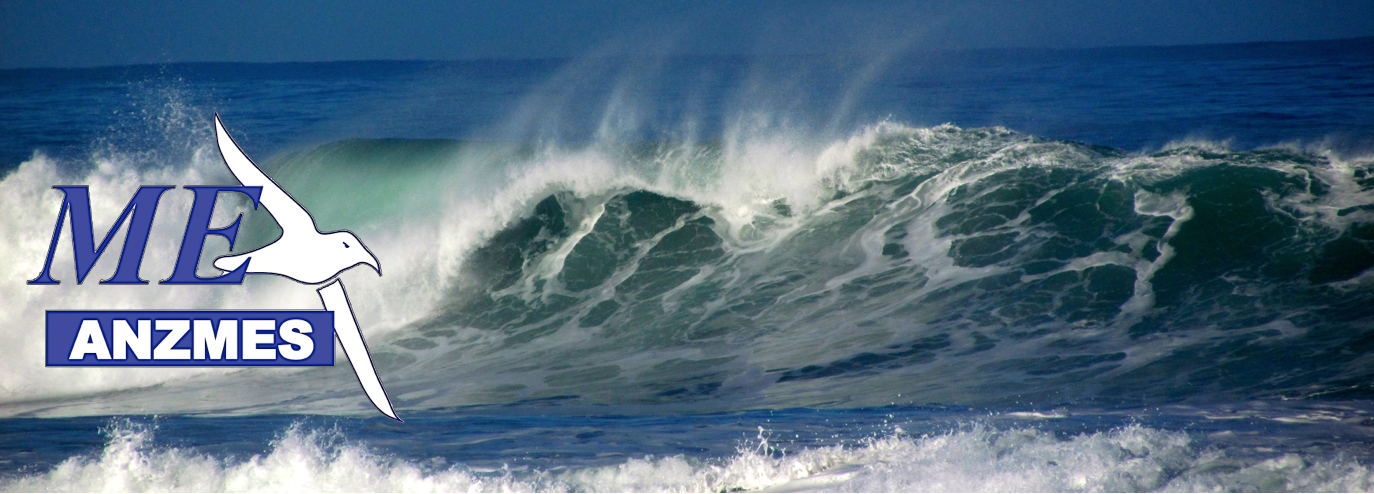Release Date: 9th May 2025
ANZMES Urges Leadership to Reclassify ME/CFS and Launch Collaborative Initiatives for New Zealanders
May 12th, World ME Day, marks a pivotal moment to drive systemic change for over 65,000 Kiwis affected by Myalgic Encephalomyelitis/Chronic Fatigue Syndrome (ME/CFS) and related post-viral conditions. Amid the growing shadow of Long COVID, the Associated New Zealand Myalgic Encephalomyelitis Society (ANZMES) highlights the urgent need for equitable recognition, research, and resources.

The Crisis:
ME/CFS, often overlooked and underfunded, devastates mobility, cognitive function, and quality of life. An alarming 50% of Long COVID sufferers meet ME/CFS criteria, compounding challenges for a vulnerable population.
The Cost of Inaction: Failing to address ME/CFS carries significant consequences for individuals, families, and society. Without immediate action, the healthcare system will continue to bear the heavy burden of unrecognised and untreated cases, leading to increased hospitalizations and prolonged disability. Moreover, the economic cost of lost productivity and caregiving responsibilities places unnecessary strain on communities and the wider economy.
ANZMES’ Proposals for Change:
- Formal Partnership for Excellence: Collaborate with ANZMES to establish a Centre of Excellence, prioritising gold-standard care, research, and education.
- Cross-party Group Formation: Introduce a dedicated parliamentary group to harmonise national policy with global best practices.
- Disability Reclassification: Align New Zealand with international standards to guarantee fair access to essential supports.
Addressing Systemic Gaps: Research underscores that individuals with ME/CFS suffer from significantly reduced health-related quality of life, ranking even lower than those with depression or multiple sclerosis. Despite this, New Zealand’s current healthcare system is marked by critical gaps, including:
- Recognition Deficit: ME/CFS is not consistently acknowledged as a debilitating condition, leading to inequities in access to care and support services.
- Outdated Treatment Protocols: Reliance on ineffective or disproven approaches leaves patients vulnerable to harm.
- Limited Specialist Resources: Many regions lack trained professionals and specialized facilities, disproportionately affecting rural and underserved populations.
- Underfunded Research: New Zealand trails behind in funding biomedical research for ME/CFS, delaying advancements in care.
- Fragmented Collaboration: Poor coordination between healthcare providers and policymakers limits the development of cohesive, patient-centered strategies.
ANZMES President, Fiona Charlton, calls on policymakers to act decisively: “The voices of 65,000 New Zealanders cannot be ignored. This World ME Day, let’s ensure that ME/CFS care transforms from marginalised to world-leading.”
ANZMES, the National Advisory on ME/CFS (and associated conditions), is spearheading a campaign calling for urgent government action to address systemic healthcare gaps and improve the quality of life for these vulnerable populations.
Research underscores that individuals with ME/CFS suffer from significantly reduced health-related quality of life, ranking even lower than those with depression or multiple sclerosis. Despite this, many in New Zealand face inadequate medical support, outdated treatment protocols, and a lack of specialised facilities—leaving the most severely affected without essential care.
Drawing Inspiration: Examples of Global Success: Transformative change is possible. Internationally, countries like Norway, Australia, and the UK provide compelling examples:
- In Norway, dedicated funding for biomedical research into ME/CFS has accelerated advancements in diagnostics and treatment.
- The United Kingdom has recognised post-viral illnesses, including ME/CFS, as a public health priority, establishing support frameworks and raising awareness. The All-Party Parliamentary Group (APPG) has driven reforms in care pathways and funding allocations, enhancing access to resources and recognition of ME/CFS within the NHS. These initiatives demonstrate that meaningful progress can be achieved through robust policy, funding, and stakeholder collaboration.
- In Australia, the government committed $1.13 million to Emerge Australia to integrate ME/CFS into healthcare, research, and education. This funding supports sustained advocacy and elevates ME/CFS care into national health policy frameworks.
In New Zealand, the Government’s engagement with Rare Disorders NZ, forming a cross-party parliamentary group, demonstrates a pathway for structured partnerships that could be emulated with ANZMES for addressing policy and practice for ME/CFS and post-viral conditions.
Join Us: Let’s Drive Change
ANZMES stands ready to collaborate with decision-makers. Together, we can uplift lives and set a global benchmark in ME/CFS care.

This year, ANZMES invites its members, allies, and the broader public to join the campaign by sending lobbying letters to their local MPs or relevant portfolio ministers. These letters advocate for tangible change and highlight the immediate need for improved disability support and healthcare access. A draft letter is available on our website, guiding members on how to amplify their voices effectively.
Charlton emphasises, “We cannot afford another year of inaction. On World ME Day, we urge the government to prioritise the health and dignity of all New Zealanders with ME/CFS and Long COVID.”
We encourage everyone to stand in solidarity with those affected by ME/CFS. Together, we can create a system that supports and uplifts those in need. For more details and to access resources, visit www.anzmes.org.nz or contact us at info@anzmes.org.nz.
Ends.
Understanding ME/CFS and long COVID
Myalgic Encephalomyelitis/Chronic Fatigue Syndrome (ME/CFS) is a long-term, multi-systemic illness affecting the nervous, endocrine, autonomic, cardiovascular, and immune systems.
It is often triggered by a viral illness and involves catastrophic debilitation with symptoms that range in severity. Patients experience severe exhaustion, post-exertional malaise (PEM), unrefreshing sleep, cognitive impairment, and orthostatic intolerance (to list a few). With over 100-200+ potential symptoms, the condition’s impact can vary greatly, making diagnosis and management highly individualised. Roughly 25% of all ME/CFS cases are categorised as mild, 50% as moderate-severe and 25% as very severe.
Long COVID (LC) is characterised by persistent, unexplained symptoms following infection with COVID-19 (SARS-CoV-2) lasting more than 12 weeks and not explained by an alternative diagnosis. Both conditions share symptoms such as extreme fatigue, cognitive dysfunction, and post-exertional symptom exacerbation (PESE), with up to 50% of long COVID cases fitting the diagnostic criteria for ME/CFS.
COVID developing to ME/CFS
Using data from a long COVID research initiative run by the US National Institutes of Health (NIH), the incidence of ME/CFS is now considered 15 times higher than pre-pandemic levels, and that people with a history of COVID are almost eight times as likely to develop the chronic condition.
Post-Exertional Malaise (PEM)
Post-Exertional Malaise (PEM), also referred to as post-exertional symptom exacerbation (PESE) in the context of long COVID, is a debilitating response to normal, every-day activities in people with ME/CFS. For individuals with severe-very severe ME/CFS or LC, this can be triggered by sensory overload, such as exposure to light or even simple conversations. Repeated episodes of PEM can exacerbate these already severe symptoms, and even minimal exertion can lead to significant setbacks for the patient’s health and wellbeing.
About ANZMES
The Associated New Zealand ME Society is the National Advisory on ME/CFS. Established in 1980, ANZMES has been at the forefront of research, representation, and education for ME/CFS in Aotearoa/New Zealand. The organisation’s expertise comes from its reputable medical team of advisors, which includes a world renowned expert and MNZM recipient, a fellow of the Royal NZ College of General Practitioners (RNZCGP) and a network of academic researchers, clinicians, and representatives from the ME community.
The organisation is a registered provider of continuing medical education with the Royal New Zealand College of General Practitioners (RNZCGP) and is dedicated to improving the lives of those affected by ME/CFS, long COVID, and associated conditions.
ANZMES is a founding member of the World ME Alliance, and a member of the Neurological Alliance NZ, long COVID Alliance, Carer’s Alliance, Disabled Person’s Assembly (DPA) and Access Matters.
The organisation’s vision is to live in a world where Myalgic Encephalomyelitis (ME)/ Chronic Fatigue Syndrome (CFS), long COVID (and associated conditions) are recognised, supported, diagnosed early, treated effectively, and cured.
The vision focuses the organisation’s mission as the trusted leader to fund and generate robust Aotearoa research, represent the global voice, and educate through best practice to improve outcomes.
The vision and mission drive the organisation’s purpose as the leading National Advisory to produce and deliver quality, reputable, authoritative, evidence-based information, data, research, and education. We represent the needs of the community to ensure best outcomes are the primary focus of healthcare, legislation, and services that affect people living with ME, long COVID, fibromyalgia, and dysautonomia.
Ends.
Read the full Transforming Lives Report (sent to MPs) here:
Contact Your Local MP: Advocate for systemic change by sending a lobby letter urging better recognition, funding, and care for ME/CFS. You can use this template:








